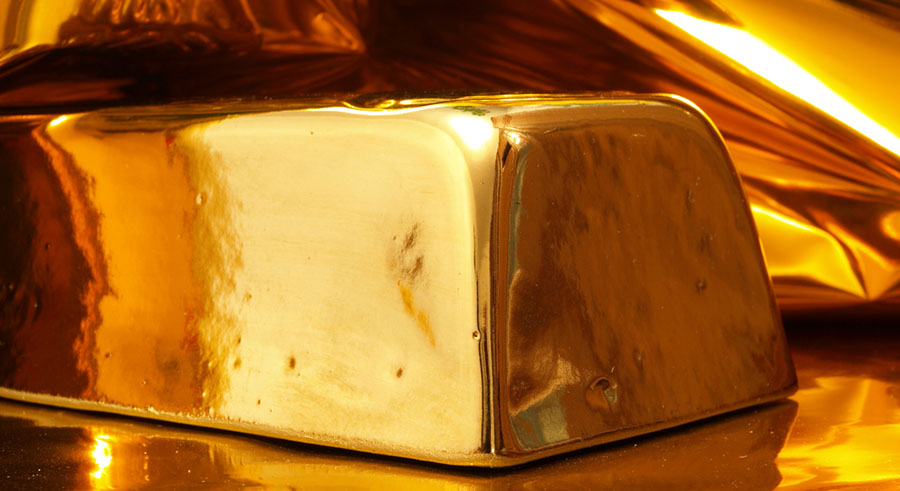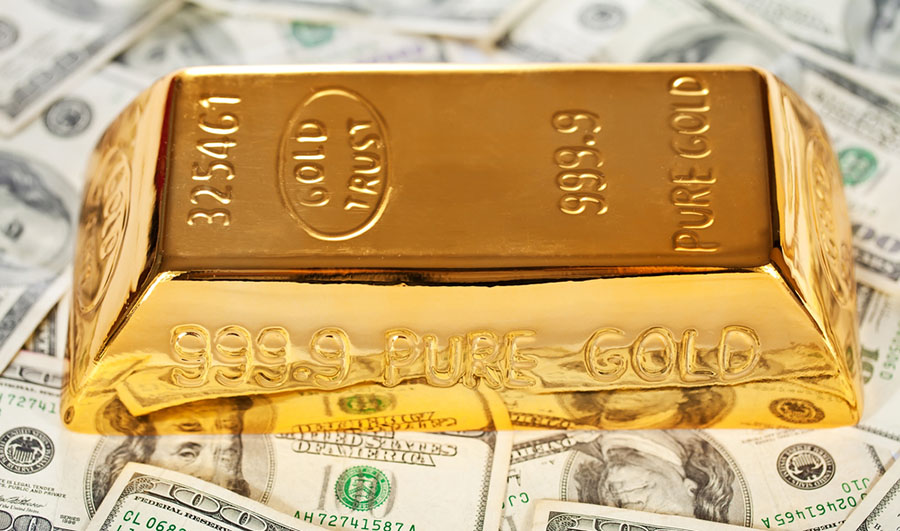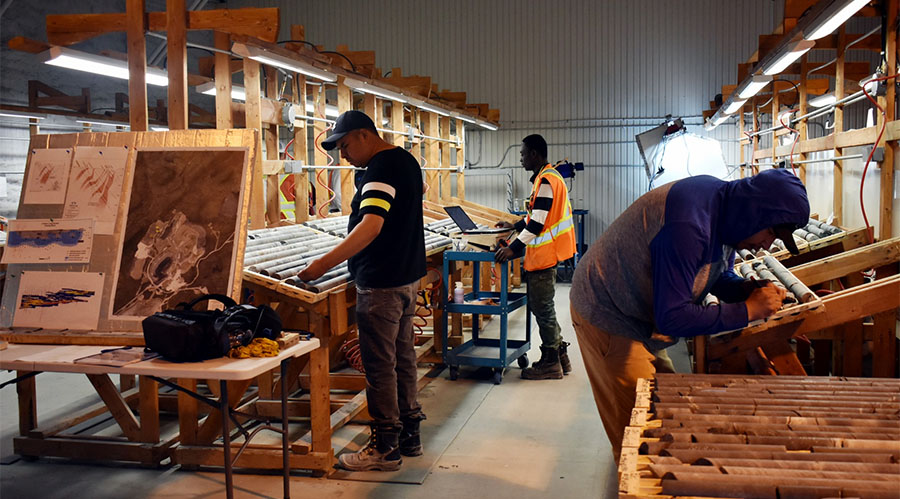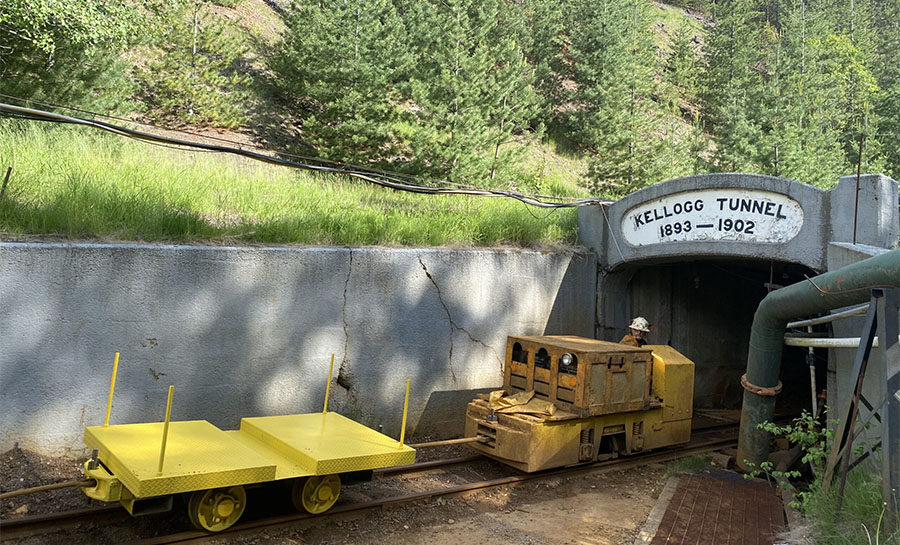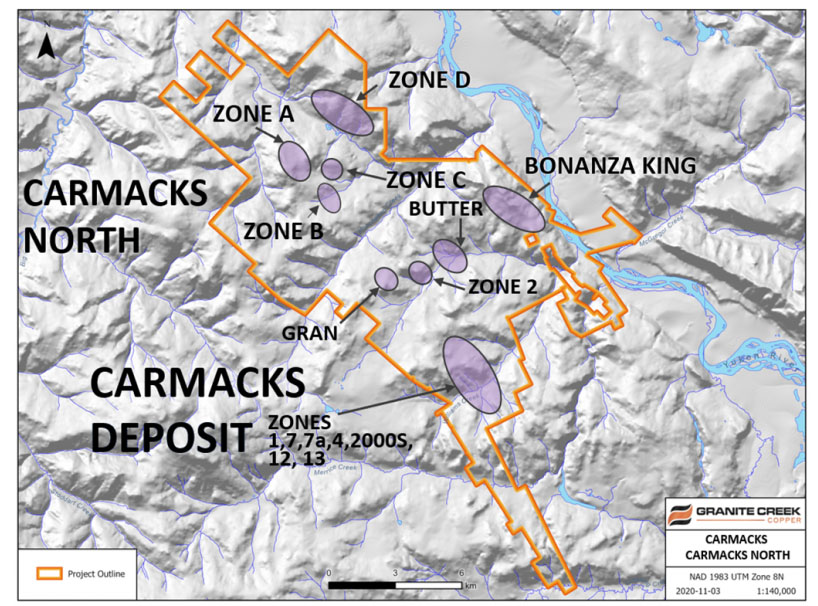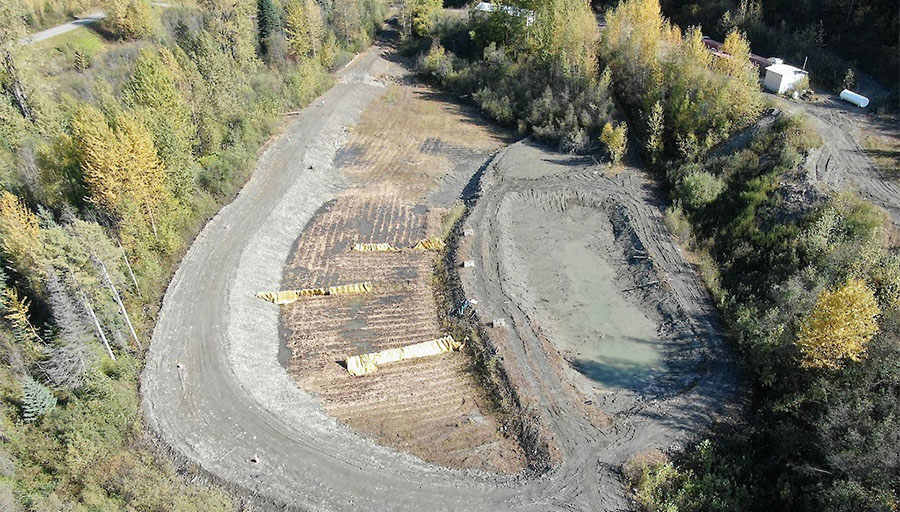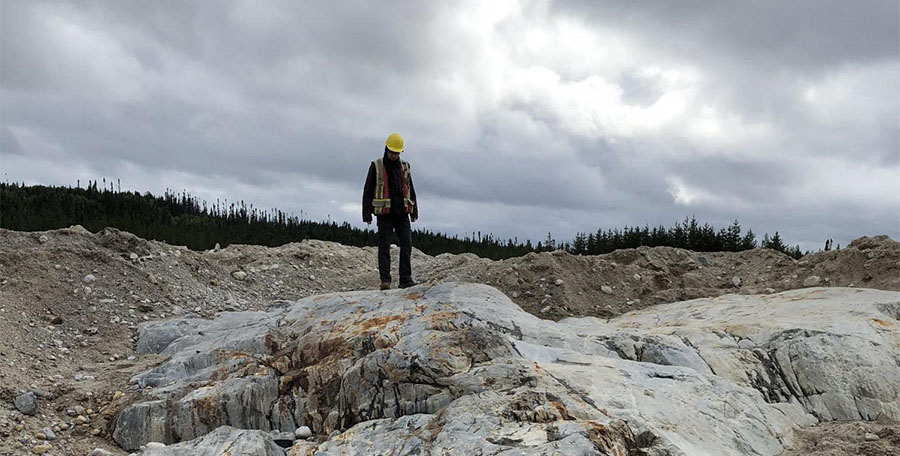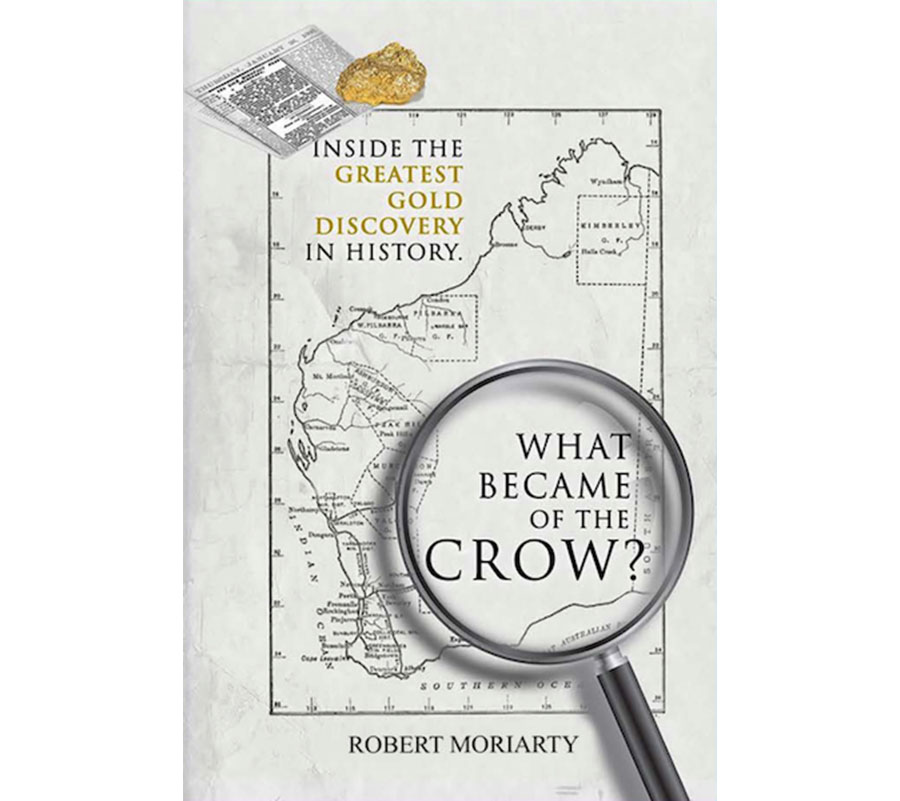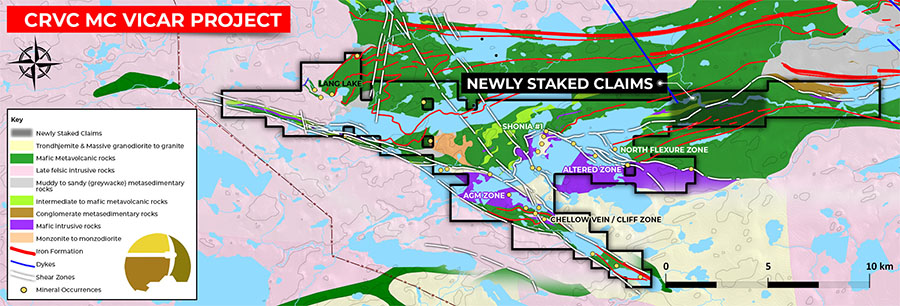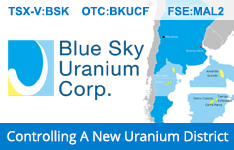Maurice Jackson: Joining us for a conversation is the 2019 Murray Pezim award winner and one of Rick Rule's hand-picked investment executives. I'm speaking of none other than Steve Todoruk of Sprott USA, to discuss the current state of the natural resource space along with new quality discoveries that have his attention at the moment.
Before we begin, sir, your body of work spans more than 40 years and counting. Provide us with a little background on your work and your investment thesis, which has made you one of the most trusted names/brokers in the natural resource space.
Steve Todoruk: Well, I'm from Vancouver, Canada. I went to university there, studying geology focused how to look for gold deposits, for five years. Upon graduating, I worked in the field for several mining companies, big and small. After 15 years I transitioned into running my own junior mining companies, as the president of two companies for about 12 years.
One day in 2003, Rick Rule asked me if I'd consider leaving that job and move down to sunny California and become a stockbroker, helping to pick gold mining stocks for our clients. I said that sounds like a pretty neat sideways career change, which I have been doing successfully to date for the last 16 years.
Maurice Jackson: Well, that's not a bad transition at all. Now that we've got some background on you let's find out which commodities in the natural resource space have your attention and why.
Steve Todoruk: Well, I like to think I've got a pretty refined niche within the mining industry. There's a saying the most exciting thing in the mining industry is if a little exploration company discovers a brand-new deposit, whether that's gold, silver, copper, uranium, nickel or zinc. If a little company can do that and then successfully keep moving the drill, grow it into a big deposit that's good quality, you usually will see a big-mining company come along and take the junior over. Thereafter, the big company builds the deposit into a mine for its shareholders.
As an investor, I want to get into that exploration company as early as I can, at as low a share price as I can, right after the discovery announcement. Fortunately, we've got 10 to maybe 15 good-looking discoveries going on right now around the world that my clients are involved in, getting good exposure, so it's pretty fun time right now with the successes we have experienced.
Maurice Jackson: Speaking of that process, something readers should consider: When you've identified a stock as a buying opportunity, once you've committed to that position there are often several times the price may spike, in addition to the arbitrage opportunity when a mining company buys out the junior. Is that correct?
Steve Todoruk: The bigger the deposit, the more valuable the asset. You should see [that in] the market cap, and therefore the share price goes up a lot higher than if a company just makes a nice, good-looking average discovery. Another way of stating it is: the bigger it is the more valuable it is, the higher the share price could go, and that hopefully results in the ten-baggers, the big home runs that we're always trying to identify in participating.
Maurice Jackson: When you're looking at a prospective project, give us the scale. What type of tonnage are you looking for? What kind of grade are you looking for?
Steve Todoruk: Well, most people are most comfortable with gold, gold equivalent, so I always say: "If a little company drills that first good discovery drill hole, I'm hoping and betting and holding my breath that they can grow it into at least a one million-ounce gold deposit to justify building a brand new, stand-alone, expensive mining operation." Whether it's silver, copper, zinc, most metals, you'd want to have it at least being a million ounces in size—ideally a lot bigger than that, three million ounces, five million ounces, ten million ounces. That's the first thing. If you can go from zero to a million ounces, you're probably going to do okay.
Maurice Jackson: Are there any commodities that you believe are being overbought right now, at the moment?
Steve Todoruk: I would have to say gold is the craziest thing out there right now. It's got all the attention for all the obvious reasons. I still think it's got a long way to go. I wouldn't say that it's overvalued. I think there's a pretty good line of reasoning that the big gold mining companies are not yet trading at their all-time highs of ten years ago. So I think we've got a long way to go.
Maurice Jackson: Are there any geographical locations that one should consider, or are they overlooking, in your opinion?
Steve Todoruk: In applying my investment thesis, if I want to see my little company get taken over by a big company, it's got to be in a jurisdiction where the big company's comfortable. Most of the major mining companies are trying to lower their risk profile—i.e., lower their country risk. If you can have discoveries in lower-risk countries like Canada, certain parts of the U.S., definitely Australia, some countries in South America, Mexico is pretty good—but for what I'm trying to do, I don't want to get involved in juniors and make discovery, say, in the Congo or some high-risk country. Greece, Turkey, things like that. So try and focus on low-risk countries would be the best advice. You sleep a lot better too.
Maurice Jackson: You certainly do.
Steve Todoruk: Rather than waking up in the morning in Mali—a couple of months ago they had a coup. You don't sleep well with that kind of stuff.
Maurice Jackson: You referenced Australia. That is a location I think many of us here in the United States, in particular companies that have projects there, overlook. I understand for compliance reasons you can't provide us with any names, but leaving company names out of the discussion, do you have any examples for us coming out of Australia?
Steve Todoruk: It's almost like, what's up with Western Australia? Right now there are four good-looking discoveries that I'm involved in. We just had the newest one announced two or three weeks ago, all germane to Western Australia.
Companies that are trying to raise capital have a better chance of raising funds if they're in a low-risk country such as Australia. But Western Australia is a lot of sand-covered deserts, it's hotter than heck, it's quite remote. It's basically, to a pretty good extent, been overlooked and underexplored over the decades, and the Australian companies are deciding to raise capital and conduct exploration, and are more than willing to put up with the heat and the remoteness and get out there and see what we can do.
The big thing is a lot of the rock out there is covered with up to 400 feet of sand and soft rock. Fortunately, today, geophysical surveys have the ability to see through that rock and sand, identifying anomalies, and then the companies attempt to dress up those anomalies with more detailed geophysics—or whatever science they can throw at it—to dress that target up as best they can, so they can then select or prioritize the targets they want to come in and drill test. In the last two years we've had four juniors I'm involved in. One of them is up somewhere between 15 and 20 times from when we first started getting into it two years ago.
But along with those two juniors, Rio Tinto Plc (RIO:NYSE; RIO:ASX; RIO:LSE; RTPPF:OTCPK) has made a brand new copper discovery out in the area. BHP Billiton Ltd.'s (BHP:NYSE; BHPLF:OTCPK) made a new Olympic Dam-type of discovery within the last 18 months. That's six discoveries and it's just in Western Australia, where it's been underexplored.
Companies are working in the rest of Australia as well but they're not having success. Those other areas are easier to get through, they're more mature, you get more outcrop type of thing. I love it. I'm loving Australia right now.
Maurice Jackson: Speaking of jurisdictions and geopolitics you somewhat touched on it here, are there any arbitrage opportunities that speculators can take advantage of with currency exchange rates as an added arbitrage?
Steve Todoruk: I don't factor that in. Again, for the discovery plays I'm trying to get in, I'm hoping for at least a double or triple; I want the home run like I just referred to. If you make 10 or 15 or 20 times your money, whatever the currency is going to move is going to be insignificant as far as I'm concerned. I do have a few clients that bring it up and ask about it, but that might be, maybe you're going to choose between big Australian gold mining companies or big American mining companies or big Canadian. If they're all quite similar you might place a bet—okay, well, I think the Australian dollar is going to perform stronger than the U.S. dollar, therefore I'm going to buy Australian gold mining companies. As far as I'm concerned that's not even a consideration.
Maurice Jackson: Well, I'm glad you addressed that because that's a question I receive frequently on my end here—and by the way, just full disclosure, at Sprott USA you're a full-service broker—as a client, do I have the ability to purchase an ASX symbol or do I have to purchase the OTC?
Steve Todoruk: No, we always want to buy the stock in the most liquid market. That's usually the home market for the company. We buy our shares directly in Australia. I wouldn't be caught dead buying shares on the OTC. Again, it depends if you're just going to buy a couple of thousand shares in your individual account. If yes, then yeah, okay, that's fine, but if you're looking to buy millions or millions and millions of shares you want to go to the most liquid market.
Maurice Jackson: I'm glad you shared that with us, because another question I receive frequently, that I'm sure you do as well, is: "I'm being told by my current discount broker that, hey this OTC is the U.S. equivalent, and it's the same TSX or ASX symbol," but as you referenced the liquidity isn't there. But also, the spread between the bid and the ask is usually greater and you're owning a derivative of the stock. Am I correct in that?
Steve Todoruk: Absolutely, spot on. Just talking to the Australians, I can tell you for sure. If we buy an Australian stock we have to charge our clients $80 for that commission up in Canada. I've got friends that are trying to buy the same stock through their brokerage firm and the Canadian brokerage firms are charging up to a $250 commission for that same trade.
Then, I just had another friend in Canada tell me that a different brokerage firm is charging him $20 a month while he holds Australian stocks. Most of the North American brokerage firms aren't buying a lot of the Australian stocks, so it's a bit of pain or a nuisance for them. They're going to charge you a pound of flesh for them.
For someone like us, if we're buying a lot of the Australian stocks we can work out different deals and rates, get a bit of a better deal for our clients. But again, in the big picture, if I'm looking to double, triple or trying to hit a home run on a junior, I'm not the slightest bit worried about whether I'm paying a $80 or $250 commission. Don't miss the opportunity because you're trying to save a few dollars.
Maurice Jackson: Well said. All right, before we close, sir, what keeps you up at night that we don't know about?
Steve Todoruk: Oh, definitely ice hockey. Are we going to get ice hockey resuming on Jan. 1, and how's my team, Chicago, going to do? Everything else is on cruise control pretty well.
Maurice Jackson: All right, sir. What did I forget to ask?
Steve Todoruk: I think you've covered all the bases.
Maurice Jackson: All right, sir. In the past, you've been generous enough in ranking readers' natural resource portfolio no-cost, no-obligation. Is this invitation still open?
Steve Todoruk: Thank you for asking. Absolutely. I'll give comments rather than rank the readers' stock. I'll try and give comments—and just a little bit of an observation, that I've been doing quite a bit of this the last four or five months. It's alarming how often my comment is: "Don't know your stock." That's not a good thing.
Maurice Jackson: No it's not. Mr. Todoruk, for someone listening who wants to further today's conversation with you, please share the contact details.
Steve Todoruk: E-mail your stocks to me at sktodoruk@sprottglobal.com or call me at (800) 477-7853.
Maurice Jackson: We ask the readers of Streetwise Reports, please make sure you put in the subject line 'Proven and Probable' to help streamline the emails. Mr. Todoruk, it's been a pleasure speaking with you today. Wishing you the absolute best, sir.
Before you make your next precious metals purchase, make sure you contact me. I'm a licensed representative to buy and sell physical precious metals through Miles Franklin Precious Metals Investments, where we have several options to expand your precious metals portfolio, from physical delivery of gold, silver, platinum, palladium, and rhodium directly to your home or office, to offshore depositories and precious metal IRAs. Call me directly at (855) 505-1900 or e-mail: Maurice@MilesFranklin.com.
Finally, please subscribe to Proven and Probable, where we provide mining insights and bullion sales. Subscription is free.
Maurice Jackson is the founder of Proven and Probable, a site that aims to enrich its subscribers through education in precious metals and junior mining companies that will enrich the world.
[NLINSERT]Disclosure:
1) Maurice Jackson: I, or members of my immediate household or family, own shares of the following companies mentioned in this article: None. I personally am, or members of my immediate household or family are, paid by the following companies mentioned in this article: None. My company has a financial relationship with the following companies mentioned in this article: None. Proven and Probable disclosures are listed below.
2) Steve Todoruk: I, or members of my immediate household or family, own shares of the following companies mentioned in this article: None. I personally am, or members of my immediate household or family are, paid by the following companies mentioned in this article: None. My company has a financial relationship with the following companies mentioned in this article: None.
3) The following companies mentioned in this article are billboard sponsors of Streetwise Reports: None. Click here for important disclosures about sponsor fees.
4) Statements and opinions expressed are the opinions of the author and not of Streetwise Reports or its officers. The author is wholly responsible for the validity of the statements. The author was not paid by Streetwise Reports for this article. Streetwise Reports was not paid by the author to publish or syndicate this article. The information provided above is for informational purposes only and is not a recommendation to buy or sell any security. Streetwise Reports requires contributing authors to disclose any shareholdings in, or economic relationships with, companies that they write about. Streetwise Reports relies upon the authors to accurately provide this information and Streetwise Reports has no means of verifying its accuracy.
5) This article does not constitute investment advice. Each reader is encouraged to consult with his or her individual financial professional and any action a reader takes as a result of information presented here is his or her own responsibility. By opening this page, each reader accepts and agrees to Streetwise Reports' terms of use and full legal disclaimer. This article is not a solicitation for investment. Streetwise Reports does not render general or specific investment advice and the information on Streetwise Reports should not be considered a recommendation to buy or sell any security. Streetwise Reports does not endorse or recommend the business, products, services or securities of any company mentioned on Streetwise Reports.
6) From time to time, Streetwise Reports LLC and its directors, officers, employees or members of their families, as well as persons interviewed for articles and interviews on the site, may have a long or short position in securities mentioned. Directors, officers, employees or members of their immediate families are prohibited from making purchases and/or sales of those securities in the open market or otherwise from the time of the decision to publish an article until three business days after the publication of the article. The foregoing prohibition does not apply to articles that in substance only restate previously published company releases.
Proven and Probable LLC receives financial compensation from its sponsors. The compensation is used is to fund both sponsor-specific activities and general report activities, website, and general and administrative costs. Sponsor-specific activities may include aggregating content and publishing that content on the Proven and Probable website, creating and maintaining company landing pages, interviewing key management, posting a banner/billboard, and/or issuing press releases. The fees also cover the costs for Proven and Probable to publish sector-specific information on our site, and also to create content by interviewing experts in the sector. Monthly sponsorship fees range from $1,000 to $4,000 per month. Proven and Probable LLC does accept stock for payment of sponsorship fees. Sponsor pages may be considered advertising for the purposes of 18 U.S.C. 1734.
The Information presented in Proven and Probable is provided for educational and informational purposes only, without any express or implied warranty of any kind, including warranties of accuracy, completeness, or fitness for any particular purpose. The Information contained in or provided from or through this forum is not intended to be and does not constitute financial advice, investment advice, trading advice or any other advice. The Information on this forum and provided from or through this forum is general in nature and is not specific to you the User or anyone else. You should not make any decision, financial, investments, trading or otherwise, based on any of the information presented on this forum without undertaking independent due diligence and consultation with a professional broker or competent financial advisor. You understand that you are using any and all Information available on or through this forum at your own risk.



